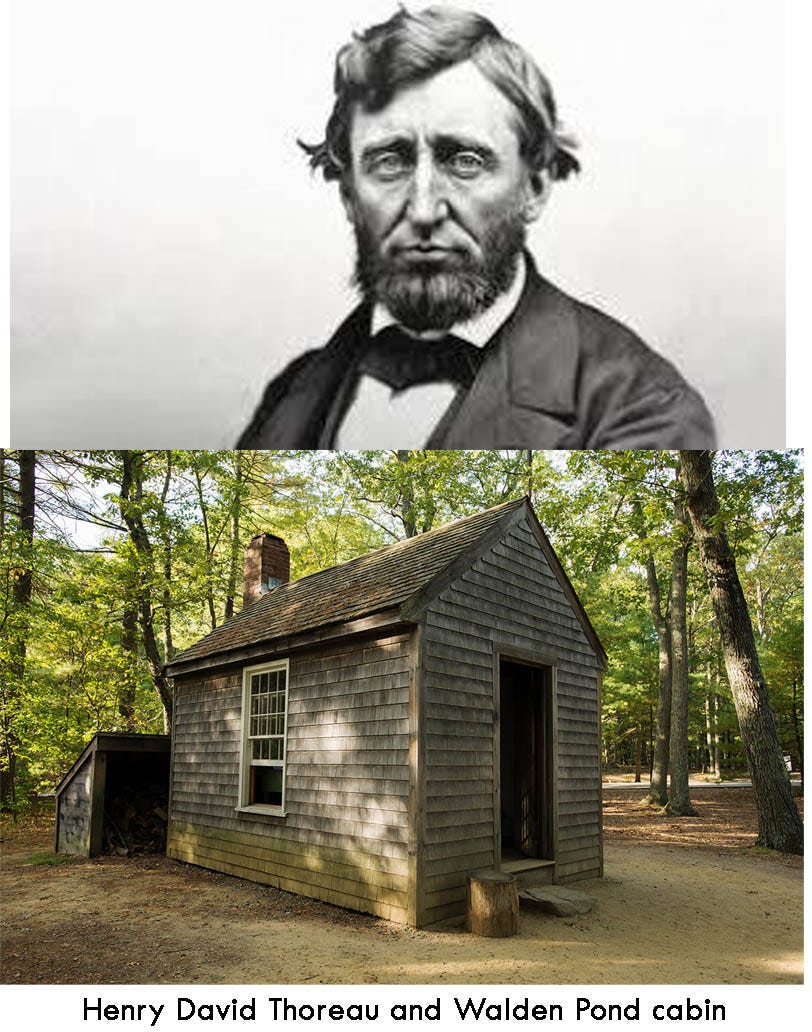I heartily accept the motto, “That government is best which governs least…”
Henry David Thoreau, Civil Disobedience
No political groups believe this anymore, not Republicans drunk with authority, or Democrats building state schemes. Only people believe it. That seems fitting to me. The refuge of American self-government is, in the end, people. Their character and belief, grounded in love of this land, our communities of friends, and antagonists too.
We make the distinction between people and the people, for the latter is an abstraction relied on by politicians and revolutionaries from Stalin to Trump to justify their own exercise of power. Abstract words are used for unwarranted action and are intuitively doubted by today’s public. For example, appeals to the word democracy as used by Democrats is an abstraction that cost the last election. Not that the system wasn’t determined by that ballot, it clearly was. But the language was too soft, too vague, too general to appeal to voters, that is, to people. What happens to a way of self-governing before it disappears is that its language gets tainted this way. Democracy. Another phrase we see getting tainted is Rule of Law. We have a common understanding of its meaning but are people ready to fight for Rule of Law? Citizens will fight to put criminals away, to end harm to people, to address injustice. But Rule of Law seems soft, vague, general. This is how we know it’s in danger. Even for our times, Thoreau had a right principal for government.
“That government is best which governs not at all” and when men are prepared for it, that will be the kind of government which they will have… But, to speak practically as a citizen… I ask for, not at once no government, but at once a better government. Let every man make known what kind of government would command his respect, and that will be one step toward obtaining it.… Can there not be a government in which majorities do not virtually decide right and wrong, but conscience? —in which majorities decide only those questions to which the rule of expediency is applicable? Must the citizen ever for a moment, or in the least degree, resign his conscience to the legislator? Why has every man a conscience, then? I think that we should be men first, and subjects afterward. It is not desirable to cultivate a respect for the law, so much as for the right…. Why does [government] not cherish its wise minority? … Why does it always crucify Christ, and excommunicate Copernicus and Luther, and pronounce Washington and Franklin rebels?”
Here is the lost view of American history. The idealistic communities of antebellum Transcendentalists went underground in the years that followed. They sought right relations among men and American politics declined. The South revolted then reasserted itself with Jim Crow and the KKK. Industrialists took power for the expansion westward, the age of Robber Barons. Of all groups that fought Civil War, the intellectuals of the revolution were the one group that lost it.
Reading of Thoreau’s brief jailing for attempting to resist the government, the stakes changed as well. The defining character of governments in the modern era is not an uncomfortable night in jail— it’s Auschwitz, Gulag, Dachau, dehumanized war and industrial slaughter of millions, from Soviet famine in 1930s Ukraine to to the Uyghur population of today’s China. Killing is a taste acquired by today’s Nation State and not easily set aside. Will America once again contribute to it? From the tradition of Beat writers, I was taught that the Nation State, corrupt and repeatedly inflicting pain, would soon surely wither and die.
Perhaps what we’re seeing in America today is a last gasp of the appeal to patriotism, of the outmoded Nation State. It doesn’t seem so sitting at my computer on July 4th, listening to the explosions outside, seeing masked policemen roam American cities, law administered by a career criminal, people snatched in vans and sent overseas to Gulags without trial, Congress in fear of the President, and the worst set of Supremes since the Taney Court that brought on the Civil War. We live in perilous times. This is a good time to think on the meaning and imperative of Thoreau, who inspired Gandhi, who inspired King. So here are a few quotes worth reading from Civil Disobedience that should make the modern conscience quake.
“It is not so important that many should be as good as you, as that there be some absolute goodness somewhere; for that will leaven the whole lump.”
“Under a government which imprisons any unjustly, the true place for a just man is also a prison.”
“Moreover, any man more right than his neighbors constitutes a majority of one…”
“Confucius said: If a state is governed by the principles of reason, poverty and misery are subjects of shame; if a state is not governed by the principles of reason, riches and honors are the subject of shame.”
“I came into this world, not chiefly to make this a good place to live in, but to live in it, be it good or bad.”



